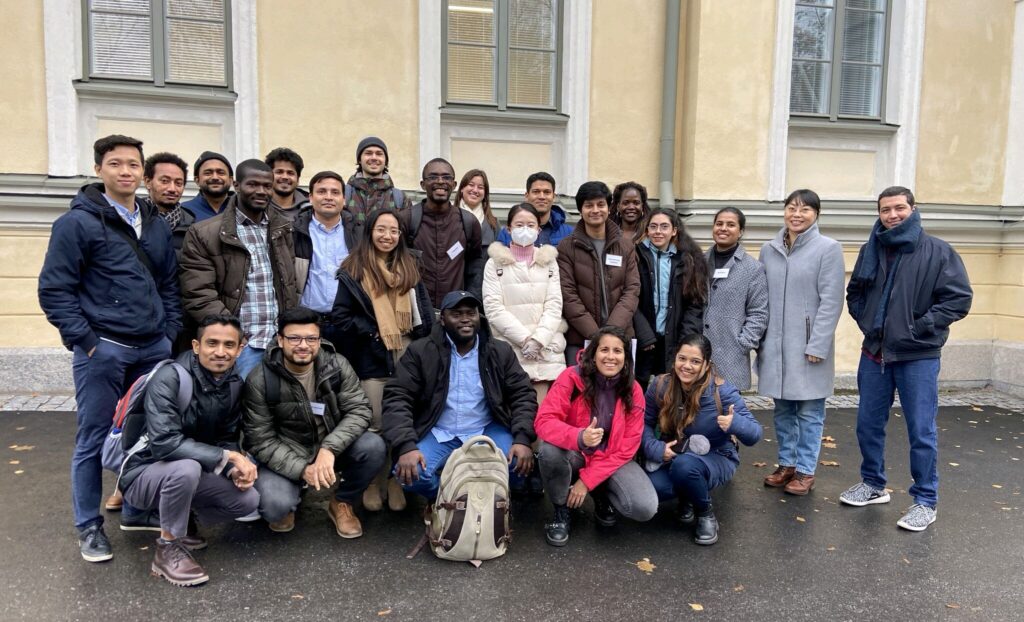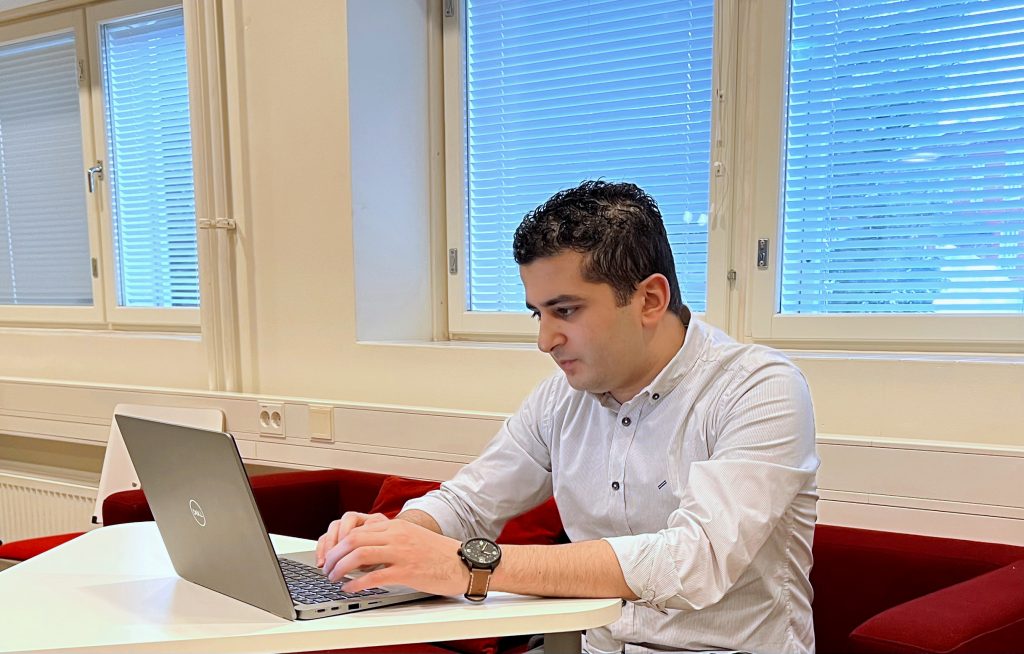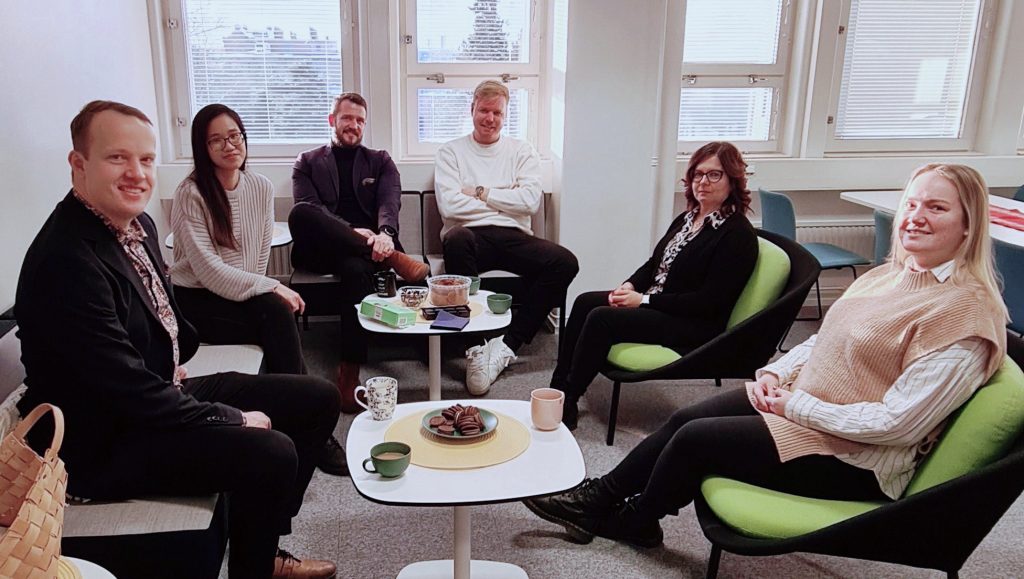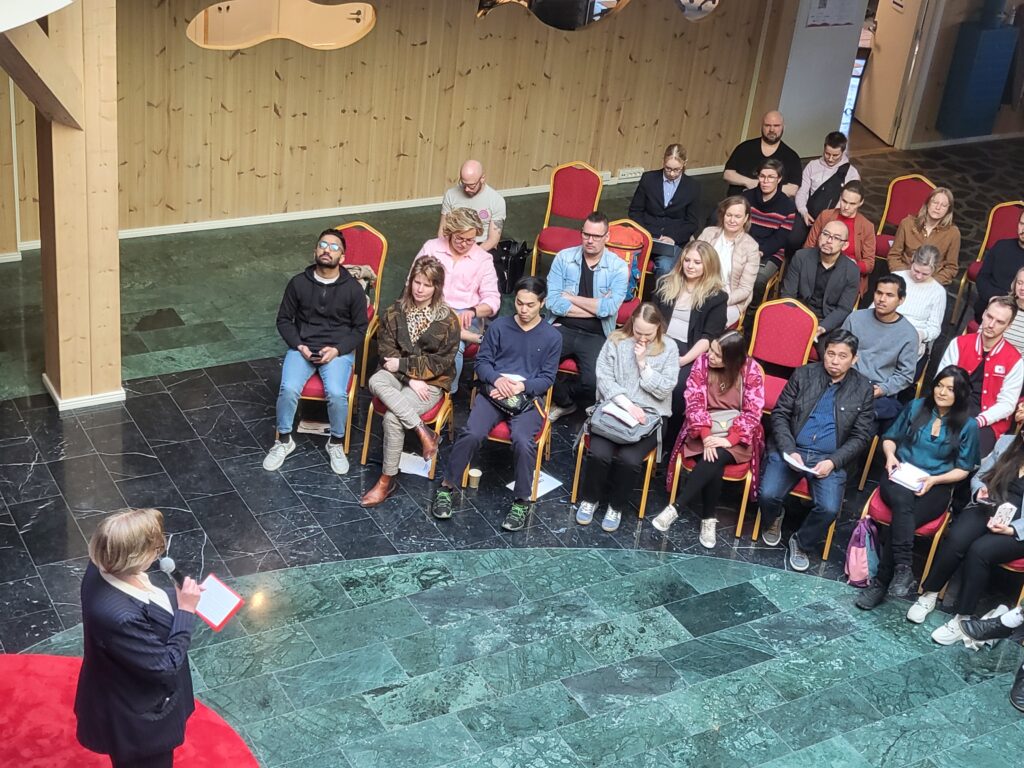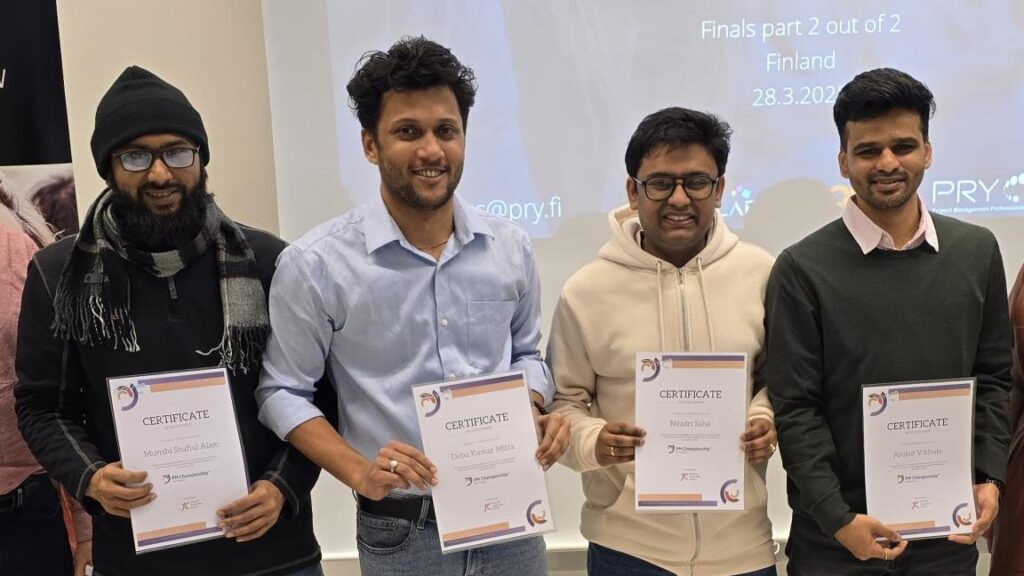Research on the benefits of cultural diversity conducted by Business Finland has found that having an international workforce boosts the productivity of companies, as it contributes to expanding new market areas, networks, and clients. Additionally, businesses that hire foreign staff are notably more likely than other businesses to say that their company has grown significantly during the last five years.
A recent study on highly educated international residents published by E2 Research concludes that the main reasons for moving to Finland are related to studies, work, the partner, and the preference to live here. The Finnish higher education system has a large number of international students, as it offers a wide range of bachelor’s and master’s degrees taught in English.
FACTS:
There are currently 543 programmes in English offered at 35 higher education institutions in Finland.
The number of foreign students is estimated to be more than 20,000.
The study indicates that 79% of respondents have adapted well to Finland, whereas 48% consider that the process of adapting to a new society took less than a year. However, the report also highligts that there are areas for improvement, as 39% of respondents consider leaving Finland in the future.
Unemployment, lack of language skills, and lack of Finnish friends are some reasons that make adapting to Finnish society challenging.
Finland needs international talents
According to the Talent Boost programme, Finland needs skilled labour immigration to secure a functioning job market, society, and economy. To tackle this challenge, market compatibility through education and training can be improved, but these steps need to be accompanied by the immigration of talented individuals from abroad.
In line with these needs, the Finnish government aims to triple the number of new international degree students by 2030. Another objective is to reach a 75% employment and retention rate for international students to stay in the country after graduation.
Challenges connected to entering working life in the Vaasa region
Vaasa is one of the most important student towns in Finland. In the autumn of 2022, 21 degree programmes taught in English were offered in Vaasa, with five higher education institutions hosting more than 700 international degree students.
The unemployment rate in the Vaasa region is estimated to be the lowest in the country. However, getting into the job market for international graduates can be challenging.
According to data from the TE Services for Ostrobothnia and Central Ostrobothnia, the level of unemployment is higher among the foreign population. Every sixth job seeker is classified as international, with different profiles and levels of education.
Anna Korsbäck, Specialist of Employment and Economic Development at the TE Services in Ostrobothnia says that highly educated international job seekers often face challenges in finding employment in their own field, however, it is difficult to have accurate data about graduated students, as not all job seekers register at TE Services. Some might be working part time or work in positions for which they are overqualified, or do not live here anymore. Also, highly educated international job seekers are a very heterogenous group when it comes to their backgrounds, so it is difficult to discuss in general lines.
Anna Korsbäck notes that there are several barriers to involvement in working life:
Some of the main obstacles to employment are related to language skills. Another reason is the fact that internationals are not familiar with writing application documents that match the requirements of the Finnish job market. They may also lack knowledge of the business environment and how it functions, as well as the importance of networks in job search. Another reason could be that many small and medium-sized companies in the Vaasa region do not have experience in hiring internationals.
Marko Laukas, EURES Advisor at TE Services, also highlights the language barrier:
In big companies, the common working language is English, but small and medium-sized ones do not use it, as they might have only Finnish or Swedish customers. They expect that their staff speaks these languages too.
Networking and collaboration is necessary
A study on the workforce in Ostrobothnia and Central Ostrobothnia published by the Centre for Economic Development, Transport and the Environment (ELY-keskus) shows a clear trend of internal migration of internationals since 2010:
“In particular, Ostrobothnia has experienced significant losses in foreign labour’s domestic migration away from the region, and in Central Ostrobothnia this trend has also become highlighted.”

One of the reasons for this might be related to the challenges of getting into the job market. The report states that both regions should continuously invest in the employment of foreign speakers to decrease their migration within the country.
“Companies could collaborate with higher education institutions and be more open to using English in their companies, rather than to lose the opportunity to have internationals as part of their staff who could be valuable assets for their organisations,” Marko Laukas suggests.
Besides this, Laukas suggests that international graduates build their network with locals and ask for support from TE Services. These contacts can help them get to know the work environment, present themselves to companies, and find hidden job positions, which are not always advertised.
Vaasa International Talents – a model for facilitating the connection between working life and international students
For the third time since March 2021, the Vaasa International Talents programme has during the academic year 2022-2023 offered training for the Finnish working life. The programme is a joint effort of five higher education institutions in the Vaasa region, aiming to support the integration of international students into the job market by providing them with skills and knowledge of the working environment in the region.
Funded by the city of Vaasa, the programme gathered 20 participants studying in a variety of English-taught degree programmes.
Tuija Tammi, Head of International Affairs at Vaasa University of Applied Sciences (VAMK), lists some of the focus areas of the programme:
The main part of the programme is competence development. This includes lectures on different topics, such as personal development and knowing yourself, as well as technical skills, such as how to use LinkedIn, write a CV, prepare for an interview, and so on. Another part of this program is individual coaching and, if possible, to arrange internships, mentoring, and job shadowing.
Tuija Tammi says that the two previous rounds of the programme have brought positive feedback from most of the participants, who felt that they got more self-confident, noticed professional development and were more prepared for the job market.
“A majority of the participants have somehow been connected to the working life, either during the programme or afterwards,” Tammi says.

Beneficial for companies as well as students
The programme also provides companies with the opportunity to save resources in the hiring process by making it easy for employers to find international students who are prepared to show their potential in working life.
First of all, the participants have learned many valuable things about Finnish working life and culture during the programme. Employers can also get partial funding for the salary costs if they provide internship for the participant. Internship is an easy way to start if one has never recruited international talent before. It is also good to mention that multicultural teams bring great value to companies through diversity, cultural competencies, language skills, etc.
says Tuija Tammi
One of the participants of the latest round of the programme is Rasheed Olayiwola, a graduate of Novia University of Applied Sciences in Master of Business Administration, Digital Business and Management. Olayiwola says that participating in the programme has been a valuable learning experience and an opportunity to connect with professionals in Vaasa.
Vaasa International Talents gave me the possibility to expand my knowledge and gain a better understanding of the working culture in Finland. It has also been an excellent opportunity for networking with professionals and to learn more about job opportunities in Vaasa for international students.

